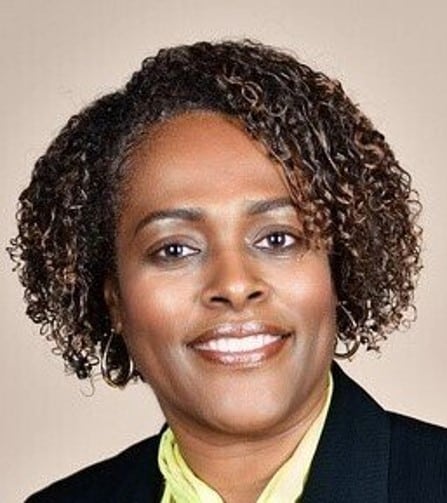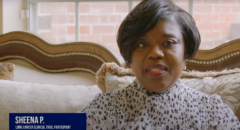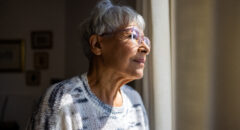
Sponsored by Merck
Clinical trials are an important tool for understanding whether investigational medicines may work. Historically, clinical trials have lacked participant diversity which can lead to results that are not applicable to the broader population. People of different ages, genders, sexes, ethnicities, and races can respond differently to medical products. Without adequate representation in clinical trials, the effectiveness and safety of these products may not be fully understood for all groups.
Adrelia Allen has spent the last 22 years focused on addressing barriers to clinical trial participation and spearheading initiatives aimed at lowering health inequities. As Executive Director, Clinical Trial Patient Diversity at Merck, she is responsible for the strategy and execution of activities to help ensure diverse representation of patients in clinical trials. In this Q&A, Adrelia discusses the importance of diversity in clinical trials, how she learned about her father’s mistrust of the medical profession at the time of his cancer diagnosis, and why she thinks it’s critical that people from marginalized racial and ethnic groups consider participation in clinical research.
Why is diversity in clinical trials important?
Due to medical mistreatment, historically speaking, there continues to be distrust for the medical community and clinical research in many communities of color. As a result, people from these communities may be less inclined to participate in clinical trials. We cannot change history, but we can learn from its mistakes and try to do better.
Diversity in clinical trials is critical because different people may have different reactions to the same treatment based on their age, gender, weight, race, ethnicity, and other factors. By including people from diverse backgrounds, clinical trials can test if the investigational medicines are safe and work well for people from all different communities.
How did your experiences with your father’s diagnosis impact your work today?
Driving change in the clinical trial recruitment process so that clinical research is reflective of the patients that treatments are intended for, is my passion. As an African American working in clinical research, I’m committed to using my personal experiences and professional expertise to engage, educate and empower communities that have been underrepresented in research. I want to help people make informed decisions about health care and elevate the importance of participating in clinical research.
I understood the full scope of my father’s mistrust of the medical profession when he refused to have an MRI to confirm a diagnosis of prostate cancer. He was concerned he would be used as







